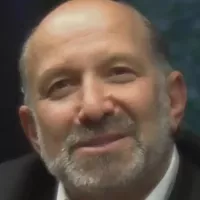Voice of America (VOA) is the U.S. government's international broadcasting network, operating with editorial independence to provide news and information to a global audience. It is the largest and oldest U.S. international broadcaster, delivering digital, TV, and radio content in 48 languages. VOA primarily targets non-American audiences, particularly those in countries lacking free press, aiming to offer unbiased reporting and promote freedom of information worldwide.
1939: FCC Policy on Broadcasting
In 1939, the U.S. Federal Communications Commission set a policy intended to enforce the US State Department's Good Neighbor Policy, which some broadcasters viewed as an attempt to direct censorship.
1940: Shortwave Signals to Latin America
Around 1940, shortwave signals to Latin America were considered crucial to counter Nazi propaganda. CBS developed "La Cadena de las Américas" radio network to enhance broadcasting to South America during the 1940s.
December 1941: COI Provides War News to American Shortwave Radio Stations
Even before the December 1941 Japanese attack on Pearl Harbor, the U.S. government's Office of the Coordinator of Information (COI) began providing war news and commentary to commercial American shortwave radio stations on a voluntary basis.
1941: Asian Transmissions Started
In 1941, Asian transmissions started with one transmitter in California.
February 1, 1942: First Broadcast to Germany
On February 1, 1942, direct programming to Germany, called "Stimmen aus Amerika" ("Voices from America"), was initiated. The broadcast began with the “Battle Hymn of the Republic" and a pledge to provide truthful news about the war.
1942: VOA Established
In 1942, during World War II, Voice of America (VOA) was established. It began as an anti-propaganda tool using shortwave radio to counter Axis misinformation and later expanded its content.
1942: VOA Founded as part of the Office of War Information
In 1942, from its founding, Voice of America became a part of the Office of War Information.
1942: Viva America Musical Show
In 1942, the musical show Viva America was included among the cultural diplomacy programming on the Columbia Broadcasting System.
1942: Office of War Information Takes Over VOA Operations
In the middle of 1942, the Office of War Information (OWI) officially took over VOA's operations. VOA reached an agreement with the British Broadcasting Corporation to share medium-wave transmitters in Great Britain.
1944: Bethany Relay Station Operational
In 1944, the Bethany Relay Station became operational. It was based on a 625-acre site in Union Township, Ohio.
1945: Viva America Broadcasts Success
By 1945, broadcasts of the show Viva America were carried by 114 stations on CBS's "La Cadena de las Américas" network in 20 Latin American nations. These broadcasts proved to be highly successful in supporting President Roosevelt's policy of Pan-Americanism throughout South America during World War II.
1945: VOA Transferred to the US Department of State
In 1945, VOA was transferred to the US Department of State. By the end of the war, VOA had 39 transmitters and provided service in 40 languages. About half of VOA's services, including the Arabic service, were discontinued.
1945: VOA becomes a function of the State Department
In 1945, Voice of America became a function of the State Department.
1947: VOA Broadcasts to Soviet Citizens
In 1947, VOA started broadcasting to Soviet citizens in Russia under the pretext of countering Soviet propaganda.
1948: Charles W. Thayer Heads VOA
Charles W. Thayer headed VOA in 1948–49.
1948: Voice of America forbidden to broadcast directly to American citizens
In 1948, Voice of America (VOA) was forbidden to broadcast directly to American citizens, pursuant to § 501 of the Smith–Mundt Act.
April 24, 1949: Soviet Union Initiates Jamming of VOA Broadcasts
On April 24, 1949, the Soviet Union responded to VOA broadcasts by initiating electronic jamming.
1949: Foy Kohler Becomes Director of VOA
In 1949, Foy Kohler became the director of VOA. He believed the VOA was serving its purpose, which he identified as aiding in the fight against communism.
January 1, 1950: Arabic Service Resumes
On January 1, 1950, the Arabic service resumed with a half-hour program.
August 1952: Billy Brown's Program Begins
From August 1952 through May 1953, Billy Brown, a high school senior in Westchester County, New York, had a Monday night program in which he shared everyday happenings in Yorktown Heights, New York.
1952: Voice of America uses converted U.S. Coast Guard cutter Courier
Between 1952 and 1960, Voice of America used a converted U.S. Coast Guard cutter Courier as a first mobile broadcasting ship.
1952: VOA Listener Data
In 1952, the VOA received 30,000 letters a month from listeners all over the world, and hundreds of thousands of requests for broadcasting schedules. In France, there were 2.1 million regular listeners.
March 1953: VOA Personnel Subjected to McCarthyist Policies
During 1953, VOA personnel were subjected to McCarthyist policies, where VOA was accused by Senator Joseph McCarthy, Roy Cohn, and Gerard David Schine of intentionally planning to build weak transmitting stations to sabotage VOA broadcasts. The charges were dropped after one month of court hearings in February and March 1953.
May 1953: Billy Brown's Program Ends
In May 1953, Billy Brown's program ended due to its popularity and the high cost of responding to fan mail. Billy Brown, a high school senior in Westchester County, New York, had a Monday night program in which he shared everyday happenings in Yorktown Heights, New York.
1953: Analysis of Listener Letters
In 1952 and 1953 while Foy Kohler was director, there was an analysis done of listener letters that found letter writing could be an indicator of successful, actionable persuasion. It was also found that broadcasts in different countries were having different effects.
1953: VOA Placed Under the U.S. Information Agency
In 1953, Voice of America was placed under the U.S. Information Agency.
1953: Billy Brown's Program Ends
In May 1953, Billy Brown's program ended due to its popularity and the high cost of responding to fan mail. Billy Brown, a high school senior in Westchester County, New York, had a Monday night program in which he shared everyday happenings in Yorktown Heights, New York.
1954: VOA Headquarters Moved
Around 1954, VOA's headquarters were moved from New York to Washington D.C.
1955: VOA Broadcasts American Jazz
From 1955 until 2003, VOA broadcast American jazz on the Voice of America Jazz Hour.
1956: Hungarian Revolution and VOA Broadcasts
During the Hungarian Revolution of 1956, VOA's broadcasts were deemed controversial, as Hungarian refugees and revolutionaries thought that VOA insinuated the possible arrival of the Western aid.
1956: Arabic Service Expands
During the Suez Crisis of 1956, the Arabic service grew to 14.5 hours daily.
1956: Program aimed at South Africa
In 1956 a program aimed at South Africa broadcast two hours nightly, and special programs such as The Newport Jazz Festival were also transmitted. This was done in association with tours by U.S. musicians, such as Dizzy Gillespie, Louis Armstrong, and Duke Ellington, sponsored by the State Department.
1956: Polish People's Republic stops jamming VOA transmissions
In 1956, the Polish People's Republic stopped jamming Voice of America (VOA) transmissions. Also, in 1956, Chinese-language VOA broadcasts were jammed.
1958: Arabic Service Reduced
By 1958, the Arabic service was reduced to six hours a day.
1959: VOA Director Henry Loomis commissions a statement of principles.
In 1959, Under the Eisenhower administration, VOA Director Henry Loomis commissioned a formal statement of principles to protect the integrity of VOA programming and define the organization's mission.
1960: Voice of America uses converted U.S. Coast Guard cutter Courier
Between 1952 and 1960, Voice of America used a converted U.S. Coast Guard cutter Courier as a first mobile broadcasting ship.
1960: Directive issued by Director George V. Allen
In 1960, a directive was issued by Director George V. Allen as a formal statement of principles to protect the integrity of VOA programming and define the organization's mission.
1962: USIA Director Edward R. Murrow Endorses VOA's Statement of Principles
In 1962, USIA director Edward R. Murrow endorsed VOA's formal statement of principles, which was designed to protect the integrity of VOA programming and define the organization's mission.
1963: Major transmitter upgrades at Bethany Relay Station
Around 1963, major transmitter upgrades were undertaken at the Bethany Relay Station, including the construction, upgrading, or rebuilding of shortwave and medium-wave transmitters.
1963: VOA covers Martin Luther King Jr.'s "I Have a Dream" speech
In 1963, Voice of America (VOA) covered Martin Luther King Jr.'s "I Have a Dream" speech, marking an important moment in the Civil Rights Movement.
1969: VOA broadcasts Neil Armstrong's first walk on the Moon
In 1969, Voice of America (VOA) broadcasted Neil Armstrong's first walk on the Moon, reaching an estimated audience of 615 to 750 million people.
1973: Soviet jamming of VOA ceases due to détente
In 1973, Soviet jamming of Voice of America (VOA) broadcasts ceased due to the détente policies during the Cold War.
1976: Chinese-language VOA broadcasts jammed
In 1976, Chinese-language Voice of America (VOA) broadcasts continued to be jammed, a practice that had begun in 1956.
1976: VOA Charter Mandates Accurate Reporting
In 1976, the VOA charter was established, mandating that its reporting be "accurate, objective, and comprehensive."
1976: Establishment of the VOA Firewall
In 1976, the Voice of America "Firewall" was put into place with the 1976 VOA Charter.
1979: Soviet jamming of VOA restarts
In 1979, Soviet jamming of Voice of America (VOA) broadcasts restarted, ending the period of détente.
September 1980: VOA starts broadcasting to Afghanistan
In September 1980, Voice of America (VOA) started broadcasting to Afghanistan in Dari.
1981: VOA opens bureau in Beijing, China
In 1981, Voice of America (VOA) opened a bureau in Beijing, China.
1982: VOA starts broadcasting to Afghanistan in Pashto
In 1982, Voice of America (VOA) began broadcasting to Afghanistan in Pashto. In 1982, VOA also began regular exchanges with Radio Peking.
1983: VOA's Polish broadcasts expanded
In 1983, during the implementation of Martial law in Poland, Voice of America's (VOA) Polish broadcasts expanded to seven hours daily.
1985: VOA Europe created as a special service
In 1985, Voice of America (VOA) Europe was created as a special service in English relayed via satellite to AM, FM, and cable affiliates throughout Europe.
1989: Voice of America expands programming to reach Chinese citizens
In 1989, Voice of America (VOA) expanded its Mandarin and Cantonese programming to reach millions of Chinese citizens and inform them about the pro-democracy movement, including the demonstration in Tiananmen Square.
1990: U.S. consolidates international broadcasting efforts
Starting in 1990, the U.S. consolidated its international broadcasting efforts with the establishment of the Bureau of Broadcasting.
1993: Clinton administration advises cutting funding for Radio Free Europe/Radio Liberty
In 1993, the Clinton administration advised cutting funding for Radio Free Europe/Radio Liberty, believing post-Cold War information and influence was not needed in Europe.
1994: International Broadcasting Act established
In 1994, US President Bill Clinton signed into law the International Broadcasting Act, establishing the International Broadcasting Bureau as part of the United States Information Agency (USIA) and the Broadcasting Board of Governors (BBG).
1994: VOA offers continuously updated programs on the Internet
In 1994, Voice of America (VOA) became the first broadcast-news organization to offer continuously updated programs on the Internet.
1994: VOA Firewall Law Passed
In 1994, laws were passed in 1994 establishing the Voice of America "Firewall" to guard against propaganda while promoting unbiased and objective journalistic standards in the agency.
1994: Bethany Relay Station Ceases Operations
In 1994, the Bethany Relay Station ceased operations after being active since 1944. The site is now a recreational park with a Voice of America museum.
1994: U.S. International Broadcasting Act
In 1994, the U.S. International Broadcasting Act was established, prohibiting editorial interference by government officials.
January 1997: VOA Europe closed down
In January 1997, Voice of America (VOA) Europe was closed down as a cost-cutting measure without advance public notice.
1998: Foreign Affairs Reform and Restructuring Act signed into law
In 1998, the Foreign Affairs Reform and Restructuring Act was signed into law, mandating the BBG become an independent federal agency as of October 1, 1999, and abolishing the USIA.
July 4, 1999: VOA Express revamped into VOA Music Mix
On July 4, 1999, Voice of America (VOA) Express was revamped into VOA Music Mix.
October 1, 1999: BBG becomes an independent federal agency
On October 1, 1999, the Broadcasting Board of Governors (BBG) became an independent federal agency as mandated by the Foreign Affairs Reform and Restructuring Act.
1999: VOA Placed Under the Broadcasting Board of Governors (BBG)
In 1999, when the USIA was abolished, Voice of America was placed under the BBG, an autonomous U.S. government agency.
2000: Kurdish Life Publication Claims VOA had Negative Impact
In 2000, according to the publication Kurdish Life, VOA's service in Iran had a negative impact on Kurds and Kurdistan, exacerbating conflict and covering up wrongful imprisonments and the building of extremist mosques.
2002: Arabic Service abolished, replaced by Radio Sawa
In 2002, Voice of America's (VOA) Arabic Service was abolished and replaced by a new radio service called the Middle East Radio Network, also known as Radio Sawa.
2003: End of the Voice of America Jazz Hour
From 1955 until 2003, VOA broadcast American jazz on the Voice of America Jazz Hour.
February 2004: Alhurra television service launched
In February 2004, Alhurra television service launched, expanding the Middle East Radio Network.
May 2004: Worldnet becomes part of VOA as "VOA TV"
In May 2004, the US government's international English language TV service Worldnet, became part of VOA as "VOA TV".
April 2, 2007: Abdul Malik Rigi Interview on VOA
On April 2, 2007, Abdul Malik Rigi, leader of Jundullah, appeared on Voice of America's Persian-language service, resulting in condemnation from the Iranian government.
2008: Radio programs in several languages ended
In 2008, as part of an effort to allocate resources to broadcasts in the Muslim world, Voice of America (VOA) radio programs in Russian, Hindi, Ukrainian, Serbian, Macedonian and Bosnian ended.
September 2010: VOA begins radio broadcasts in Sudan
In September 2010, Voice of America (VOA) began radio broadcasts in Sudan.
2012: Peter Heinlein leads VOA service
Peter Heinlein led the VOA service from 2012 to 2014.
February 2013: China Central Television releases documentary alleging VOA instigated self-immolations
In February 2013, China Central Television released a documentary alleging that Voice of America's broadcasts motivated a Tibetan to attempt self-immolation. VOA denied the allegations and demanded a retraction.
March 2013: VOA Radiogram launched
In March 2013, VOA Radiogram was launched as an experimental program to transmit digital text and images via shortwave radiograms.
2013: Peter Heinlein Wrote Complaint About the Service
In 2013, Peter Heinlein wrote a complaint about the VOA service, citing role confusion whereby non-journalist translators took on the role of journalists.
2013: Budget cuts lead to end of certain foreign-language transmissions
In 2013, budget cuts led Voice of America (VOA) to end foreign-language transmissions on shortwave and medium wave to Albania, Georgia, Iran, and Latin America, as well as English-language broadcasts to the Middle East and Afghanistan.
2013: Smith-Mundt Act amended to allow American citizens access to VOA content
In 2013, the Smith-Mundt Act was amended via the passage of the Smith-Mundt Modernization Act provision of the National Defense Authorization Act for 2013, allowing American citizens access to Voice of America (VOA) content.
November 1, 2014: Stations are offered VOA1
Since November 1, 2014, stations are offered VOA1 which is a rebranding of VOA Music Mix.
2014: VOA offers five English-language broadcasts.
As of 2014, the Voice of America website had five English-language broadcasts (worldwide, Learning English, Cambodia, Zimbabwe, and Tibet) and versions in 48 foreign languages.
2014: English-language transmissions to Asia cut
In 2014, Voice of America (VOA) cut most of its English-language transmissions to Asia, as well as shortwave transmissions in Azerbaijani, Bengali, Khmer, Kurdish, Lao, Uzbek, and Greek.
2014: Peter Heinlein leads VOA service until 2014.
Peter Heinlein led the VOA service from 2012 to 2014.
2015: VOA's DEEWA Radio Airs in Pakistan
In 2015, VOA's DEEWA Radio aired in Pakistan, with some listeners expressing suspicion about the program's agenda, while others reported experiencing a positive effect and empowerment.
January 2016: Jeff Shell Detained and Deported from Russia
In January 2016, Jeff Shell, Chairman of the Broadcasting Board of Governors that oversees Voice of America, was detained and deported by Russian authorities upon arrival in Moscow, despite holding a valid Russian visa.
2016: VOA Firewall Law Further Reinforced
In 2016, laws were passed in 2016 reinforcing the Voice of America "Firewall" to guard against propaganda while promoting unbiased and objective journalistic standards in the agency.
2016: VOA Audience in 2016
In 2016, the Voice of America (VOA) had a weekly worldwide audience of 237 million.
January 2017: Concerns raised over potential politicization of VOA after Trump inauguration
After the January 2017 inauguration of US President Donald Trump, tweets by Voice of America seemed to support debunked claims, raising concerns over possible attempts by Trump to politicize VOA.
February 7, 2017: Current Time Begins Round-the-Clock Broadcasting
On February 7, 2017, round-the-clock broadcasting of Current Time began.
April 19, 2017: VOA Mandarin Service Interviews Guo Wengui, Interview Abruptly Halted
On April 19, 2017, the VOA Mandarin Service interviewed Chinese real estate tycoon Guo Wengui in a live broadcast. The interview was abruptly halted by VOA leadership less than half-way into the three-hour interview, following warnings from the Chinese government. An investigation concluded the decision was based on journalistic best practices.
June 2017: VOA Radiogram ended
In June 2017, Voice of America (VOA) Radiogram ended after 220 editions due to the retirement of the program producer.
June 25, 2017: Shortwave Radiogram began transmission
On June 25, 2017, Shortwave Radiogram began transmission from the WRMI transmitting site in Okeechobee, Florida, following the end of VOA Radiogram.
December 2017: VOA Deemed a "Foreign Agent" in Russia
In December 2017, Voice of America was deemed a "foreign agent" in Russia under the Russian foreign agent law, following a new directive from the Kremlin.
2017: VOA Designated as Foreign Agent in Russia
In 2017, Russia designated Voice of America (VOA) as a foreign agent, mandating the establishment of a Russian legal entity.
2018: Negussie Mengesha meets Ethiopian Prime Minister
In 2018, Negussie Mengesha, the head of the VOA Africa division for several years, met the newly appointed Ethiopian prime minister Abiy Ahmed. Before this, the service was mostly seen as anti-Ethiopian government.
2018: Pakistani Authorities Block VOA Website
In 2018, Pakistani authorities blocked the website of VOA's Pashto and Urdu language radio service.
April 2020: White House criticizes VOA coverage of coronavirus pandemic
In April 2020, during the COVID-19 pandemic, the White House published an article in its daily newsletter critical of Voice of America (VOA) coverage of the coronavirus pandemic.
June 3, 2020: Michael Pack confirmed as head of US Agency for Global Media
On June 3, 2020, Michael Pack was confirmed as head of the US Agency for Global Media, which oversees Voice of America (VOA).
November 2020: US District Court Judge finds Pack violated the First Amendment rights of Voice of America journalists
In November 2020, US District Court Judge Beryl Howell found that Michael Pack violated the First Amendment rights of Voice of America (VOA) journalists.
December 2020: Pack replaces VOA Acting Director with Robert Reilly
In December 2020, Michael Pack replaced Voice of America (VOA) Acting Director Biberaj with Robert Reilly, a former VOA director who had written critically of Muslims, gays, and lesbians.
January 11, 2021: VOA reporter Patsy Widakuswara removed from White House beat
On January 11, 2021, VOA interim director Reilly ordered veteran reporter Patsy Widakuswara off the White House beat after she attempted to question Secretary of State Mike Pompeo. Dozens of VOA journalists petitioned for Reilly's resignation. Gregory Meeks and Michael McCaul supported her reinstatement.
May 2021: VOA Amharic service accused of bias
In May 2021, several former employees accused VOA's Amharic service, under Negussie Mengesha, of being biased in favor of the government of Ahmed and failing to report on atrocities committed during the Tigray War.
June 2021: Mail & Guardian reports on VOA's coverage of the Tigray War
In June 2021, Mail & Guardian reported on an investigation which found that during the Tigray War, the only major foreign news service that was not harassed by Ethiopian security services was VOA. VOA was also accused of biased coverage.
June 2021: Roskomnadzor Complaint about VOA
In June 2021, the Russian news agency TASS reported that Russia's state communications watchdog Roskomnadzor complained that the foreign agent Voice of America radio station challengingly refused to observe Russian law because it had not established a Russian legal entity.
2021: Voice of America launched 52 Documentary
In 2021, Voice of America launched 52 Documentary, a series that publishes weekly films about human experiences. The series is presented on the streaming app, VOA+, and YouTube.
June 30, 2022: VOA Website Blocked in Turkey
On June 30, 2022, the Turkish media watchdog, Radio and Television Supreme Council (RTÜK), blocked access to VOA's website amerikaninsesi.com in Turkey because VOA had not applied for the necessary licence.
2022: VOA Audience and Staffing in 2022
As of 2022, Voice of America (VOA) had a weekly worldwide audience of approximately 326 million and employed 961 staff with an annual budget of $267.5 million.
2022: VOA Blocked in Russia
In 2022, Voice of America (VOA) was blocked in Russia, along with other Western international broadcasters, although its content remained accessible via VPNs and other software.
May 2023: Russia Bans Yolanda Lopez
In May 2023, Russia banned then-acting VOA chief Yolanda Lopez from entering the country.
August 2023: VOA Turkish Website Blocked
In August 2023, VOA Turkish broadcast over a different VOA website domain name, voaturkce.com, which was blocked as well.
October 7, 2023: Guidance on referring to Hamas actions and members
After the October 7, 2023, Hamas attack on Israel, VOA issued guidance to staff on how to refer to the actions and members of Hamas. This guidance led to criticism from Republican members of Congress, prompting a response from USAGM chief executive Amanda Bennett clarifying VOA's policy. The controversy resulted in Congress reducing the budget of USAGM.
June 12, 2024: House Committee Finds Evidence of Corruption at VOA
On June 12, 2024, the House Foreign Affairs Committee determined there was "credible evidence of corruption" related to Setareh Derakhshesh Sieg, former director of Voice of America's Persian News Network (PNN).
July 2024: Michael Abramowitz assumes position as VOA director
In July 2024, Michael Abramowitz assumed the position of VOA director. He previously served as president of Freedom House and spent nearly 25 years as a reporter and editor for The Washington Post.
December 2024: Trump Announces Kari Lake as VOA Director Nominee
In December 2024, president-elect Trump announced his intention to name Kari Lake as the director of VOA. However, the International Broadcasting Advisory Board holds the authority to approve the appointment or removal of the VOA Director.
December 2024: Trump announces Kari Lake as his choice for VOA Director
In December 2024, then president-elect Donald Trump announced Kari Lake as his choice for VOA Director. Lake had previously called for imprisoning journalists and advanced false claims around election losses. The International Broadcasting Advisory Board has the authority to approve or remove the VOA Director.
2024: VOA audience larger than BBC World Service
As of 2024, the Voice of America's audience was larger than the next-largest international broadcaster, which is the BBC World Service.
2024: Value of Russian jamming costs in 1956 adjusted for inflation
In 2024, the $125 million spent annually by the Russians to jam VOA in 1956 is equivalent to $1.2 billion.
February 2025: Elon Musk calls for VOA to shut down
In February 2025, Elon Musk called for VoA and Radio Free Europe to shut down. Around the same time, veteran reporter Patsy Widakuswara was reassigned from the White House beat again, and articles critical of Trump were reportedly not published or were changed after publication.
March 14, 2025: VOA Journalists Placed on Administrative Leave
On March 14, 2025, almost all of VOA's 1,300 journalists, producers, and assistants were placed on administrative leave.
March 2025: Lawsuits filed against the Trump administration, temporary restraining order issued
In March 2025, lawsuits were filed against the Trump administration regarding VOA employees. The District Court for the Southern District of New York issued a temporary restraining order, preventing the administration from taking further actions resulting from the executive order, including terminating staff, ending contracts or closing offices.
March 2025: Reports of Reassignments and Censorship at VOA
In March 2025, reports emerged that a chief national correspondent was placed on paid absence, and veteran reporter Patsy Widakuswara was reassigned from the White House beat for the second time. Simultaneously, it was reported that articles containing criticism of Trump were either not published or were altered after publication.
April 22, 2025: Federal ruling orders the Trump administration to restore VOA
On April 22, 2025, a federal ruling from the U.S. District Court for the District of Columbia ordered the Trump administration to restore VOA and return its employees and contractors to work.
June 2025: Farsi-speaking VOA staffers called back to work after Israeli strikes on Iran
Following the June 2025 Israeli strikes on Iran, several dozens of Farsi-speaking VOA staffers were called back to work.
June 20, 2025: Layoff Notices Sent to VOA Employees
On June 20, 2025, layoff notices were sent to 639 VOA employees, completing an 85% reduction in staff at the U.S. Agency for Global Media since the beginning of Trump's second term, and effectively shutting down the service.
Mentioned in this timeline

Elon Musk is a businessman and entrepreneur who leads Tesla...

Donald John Trump is an American politician media personality and...

Bill Clinton served as the nd U S President from...
Ukraine is a country in Eastern Europe the second-largest on...

Martin Luther King Jr was a pivotal leader in the...

Joe Biden is an American politician who served as the...
Trending
8 seconds ago Jaden McDaniels' rise with Timberwolves foreseen by Crawford; joins Leonard's exclusive group.

59 minutes ago Kris Dunn Shines: Steals the Show with Impressive Defensive Performance for Clippers

59 minutes ago Queta's Hilarious Clip Evokes Mazzulla Memories: A Lighthearted NBA Moment

59 minutes ago Howard Lutnick faces potential subpoena in Epstein investigation, House Republicans consider deposition.

60 minutes ago Nakashima at Acapulco Open 2026: Match Predictions and Results Analysis.

60 minutes ago Donte DiVincenzo's Underrated Impact on Timberwolves: A Deep Dive into His Contributions
Popular

Jesse Jackson is an American civil rights activist politician and...

Susan Rice is an American diplomat and public official prominent...

Barack Obama the th U S President - was the...

XXXTentacion born Jahseh Dwayne Ricardo Onfroy was a controversial yet...

Michael Joseph Jackson the King of Pop was a highly...

Kashyap Pramod Patel is an American lawyer who became the...